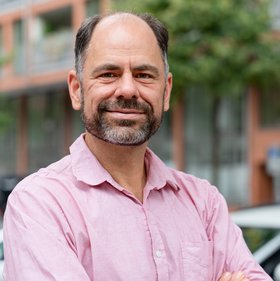Research Projects
My research has long focused on generating new computational approaches to analysing and managing large biological data sets. I have generated new methods to improve genome assembly (PAGIT) or analyse expression data. I applied those methods to study the evolution of parasites and host-pathogen interactions. Our latest contribution is ILRA (2023), which helps polish long-read assemblies. We maintain the Companion Annotation server, which allows the community to annotate their parasite genomes in less than a day (and visualise the results).
With my computational assembly tools, we describe novel malaria genomes to explore the speciation and understand the structure of variable gene families. I collaborate with Sylvain Gandon (Montpellier), Franck Prugnolle (Stellenbosch), and Juliane Schaer (Berlin).
var genes, which encode the Plasmodium falciparum erythrocyte membrane protein 1 (PfEMP1), particularly interest me. One aim is to explore the "var gene universe" structure, understand how diversity is maintained, and find patterns in polymorphic gene families. By assembling thousands of genes from clinical isolates, I hope to understand the recombination of them and use them to explore microevolution after drug and vaccine bottlenecks. I collaborate with several people in the field, including Dr Anna Bachman, Dr Antoine Claessens, Prof Alex Rowe and Prof Thomas Lavstsen.
Another research interest is to use single-cell approaches (transcriptomic and spatial) to explore further host-pathogen interactions and cell-cell interaction in diseases. Although I have an overarching theme to improve health in the Global South, my research focus is method-driven. We explore
- Tools to visualise and analyse scRNA-Seq data through our Glasgow single-cell atlas. The underlying tool is paraCell.
- Integrate multimodale dataset
- Tools to process scRNA-Seq and spatial data
- Host-parasite interactions
To explore host-pathogen interactions I collaborate with Prof Matt Marti, Dr Chris Moxon, Prof James Brewer, Prof Francis Ndungu, Dr Lucas Amenga-Etego and Prof Gordon Awandare to generate samples and confirm findings. The aims are to understand niches of parasites, understand immunity and explore cell-cell interactions.
Further, I collaborate with many to apply tools and generate data to understand better data to generate novel tools. This list is not exhaustive and summarises more of the spirit.
- scRNA-Seq in Trypanosoma - Dr Manu De Rycker, Dr Emma Briggs, Prof Richard McCulloch and Martin Llewellyn
- scRNA-Seq in Malaria - Prof Andy Water, Prof Matt Marti, Lisa Ranford-Cartwright, Elena Gomez-Diaz and Prof John Adams
- scRNA-Seq applied to immune cells - Prof Mariola Kurowska-Stolarska, Prof Julia Edgar and Dr Megan MacLeod
- Computational tools for clinical data (Immune mediated-inflammatory disease) - Prof Michael Barnes, Prof Iain McInnes and Prof Stefan Siebert.
We are exploring different tools to facilitate all those scRNA-Seq, spatial and host-pathogen analyses. So far, we have
- paraCell to visualise and analyse host-parasite data
- cellXplore - to come soon (no pressure)
- TrAGEDy- to compare trajectories
- Exploring cell-cell communication with topic models
- CellDeep - to come soon
- Blase - to come as well...
- peaks2UTR- detects you the missing 3'UTR for 10X Chromium Genomics mapping!
- and more to come RNAcare
If you are interested in learning bioinformatics, we run our Glasgow Bioinformatics Summer School in the last two weeks of August. Registration should open in February of each year, with a first-come, first-served place allocation.








